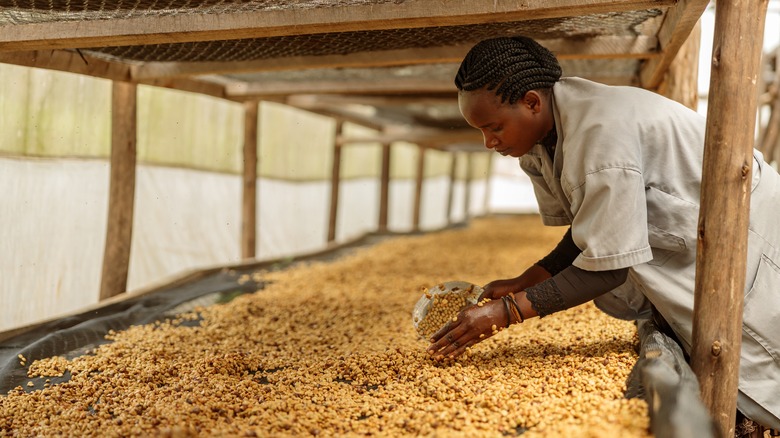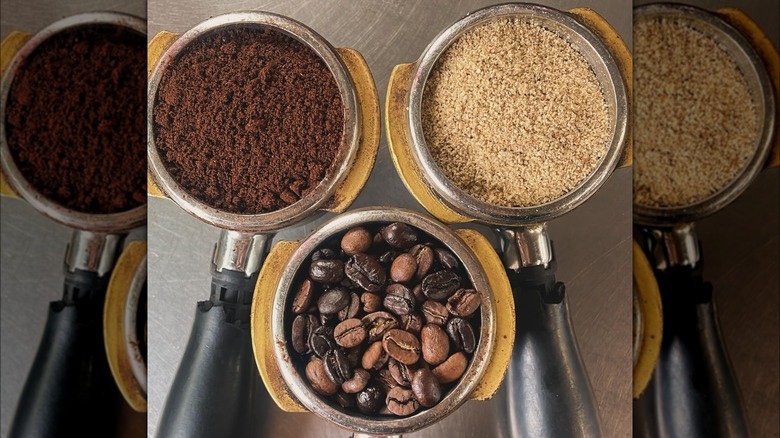What Makes White Coffee Stand Out From The Regular Kind?
A strong cup of coffee is a must-have morning companion for many. But have you ever heard someone ask for a cup of white coffee? This doesn't mean taking your coffee with milk and sugar to make it look white (as opposed to taking it black). Instead, white coffee refers to the coffee beans themselves — specifically, beans that have been roasted at a lower roasting temperature and for less time, making for a cup of joe with a milder flavor.
There's a wide world of coffee out there, and white coffee stands out from light, medium, or dark roasted beans for its flavor profile that's quite the opposite from the coffee you're used to. White coffee is sweet with a nutty aroma and a lightness that likens it closer to tea than coffee. Visually, white coffee beans are lighter in color, with more of a tan-white shade than a deep brown. The resulting liquid is a light beige, not a pure white, as the name might suggest.
How white coffee is roasted and ground
All coffee starts with the same ingredient: Green coffee beans. But to create white coffee, these beans are roasted at a low temperature; usually about 325 F. This is significantly lower than roasting temperatures for dark roast coffees, which cook at temperatures up to 540 F. In addition to the lower temperature, white coffee takes less time to roast. Lighter-roasted coffee is often pulled after the first crack in the beans, but white coffee is pulled even earlier — just before that first crack.
White coffee can be difficult to grind yourself at home, especially if you try to grind the beans without a grinder. The beans haven't been roasted very long, so they can be very dense and hard to break down. Buying white coffee beans pre-ground is best, as commercial roasting facilities can handle this task with more powerful grinders. When brewing white coffee, an espresso machine will be your best bet since the high pressure will help brew the coarser, denser white coffee grounds.
Antioxidant and flavor differences in white coffee
Part of white coffee's appeal has come from its marketing by cafes and health food stores as a magical health elixir. A shorter and lower temperature roasting process means a higher amount of antioxidants like chlorogenic acid are found. These antioxidants don't get cooked away from high roasting temperatures like in more traditional medium or dark roast coffees. While the presence of chlorogenic acid is confirmed in this lightly roasted coffee, whether this antioxidant makes white coffee inherently healthier than other coffee is inconclusive.
White coffee's unique, nutty flavor is unlike any regular coffee brew you've ever had and is worth trying. But if you prefer a more full-bodied cup of coffee and don't think this light brown coffee brew is for you, you have some options. Try adding a scoop of medium or dark-roasted coffee grounds with your white coffee grounds when brewing your morning cup. This will give a hint of the typical deep coffee taste you're used to. However, if you usually shy away from coffee because of its bitterness, then the natural sweet nuttiness of white coffee may just be your match.


